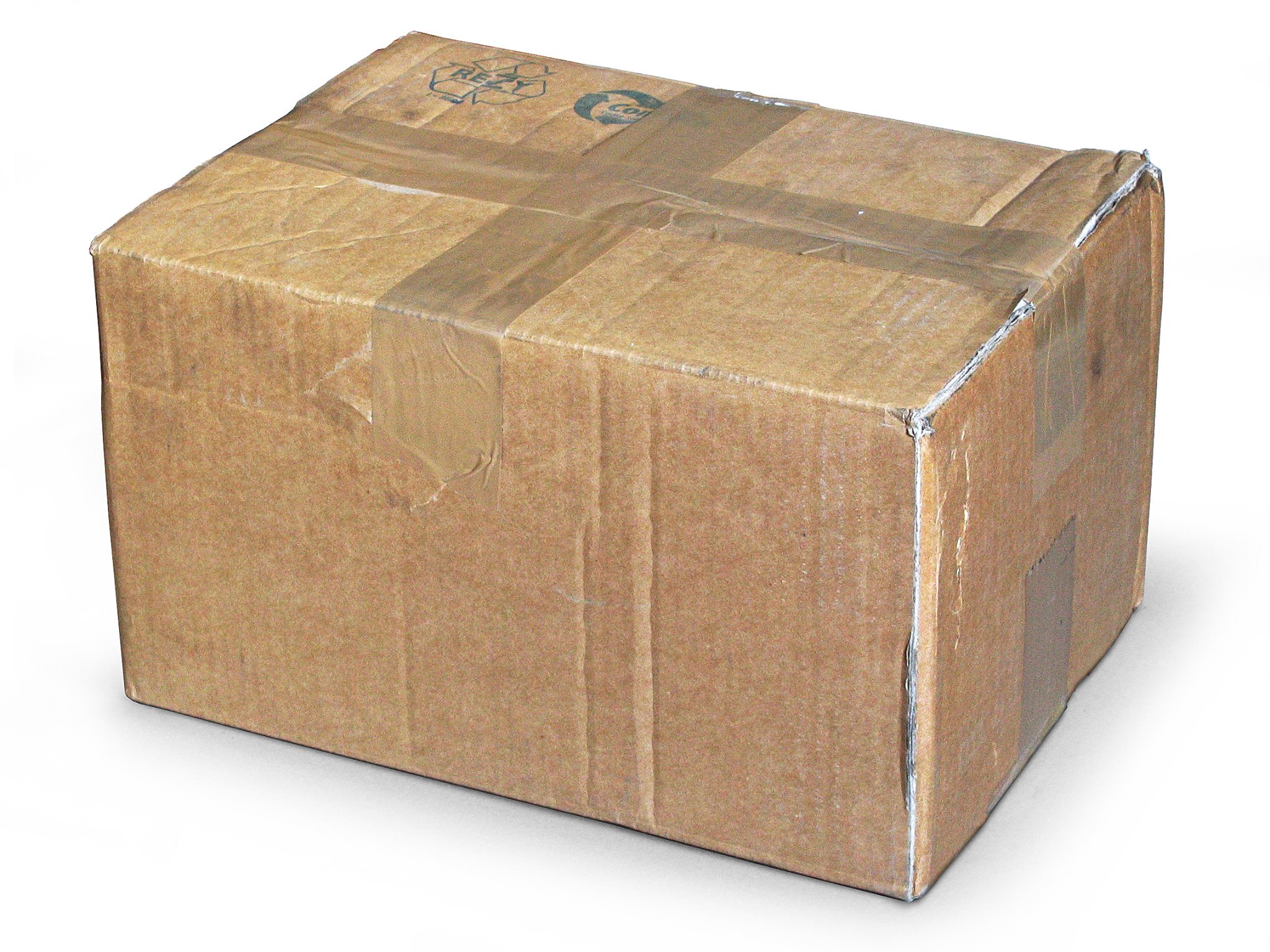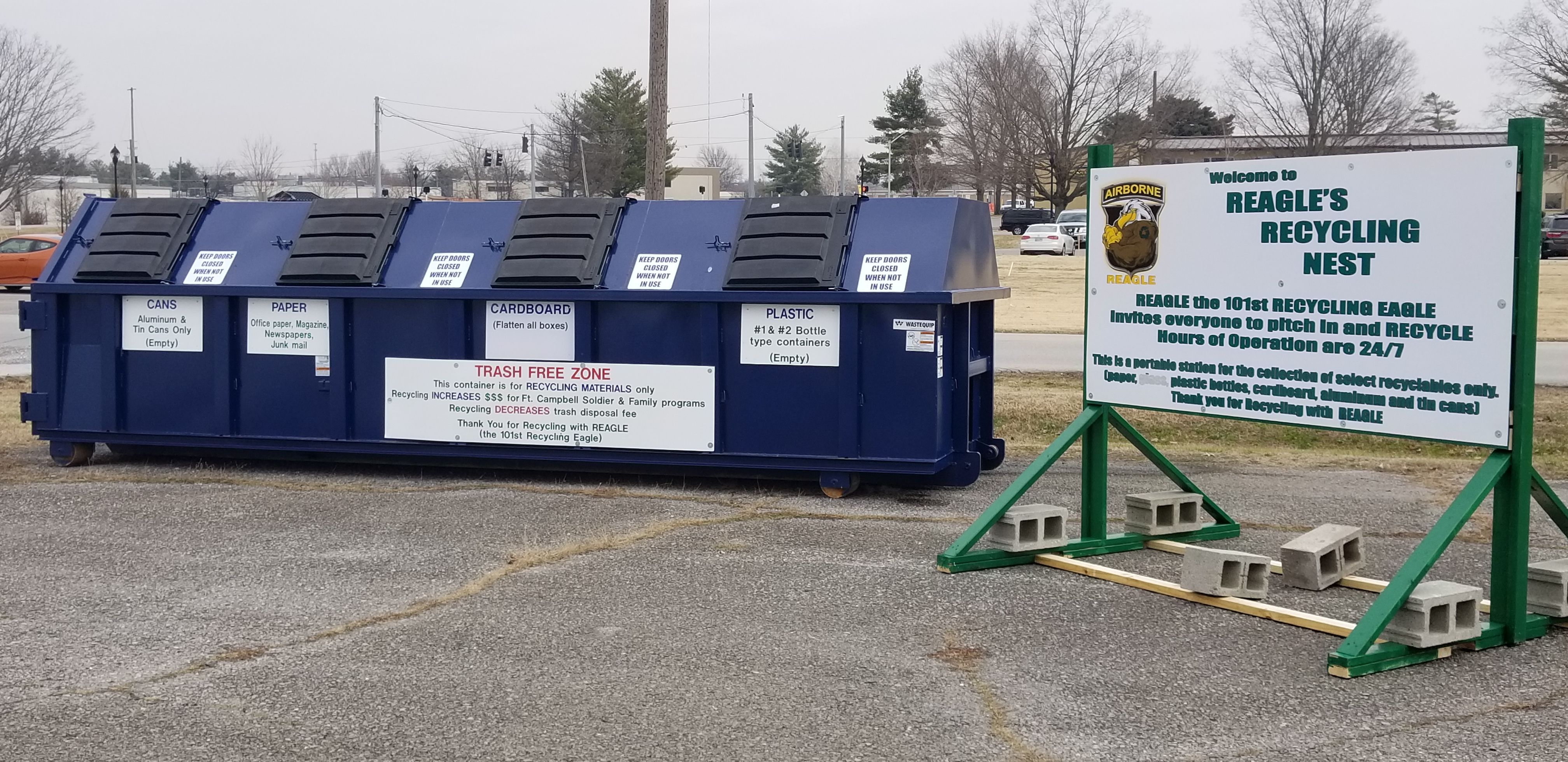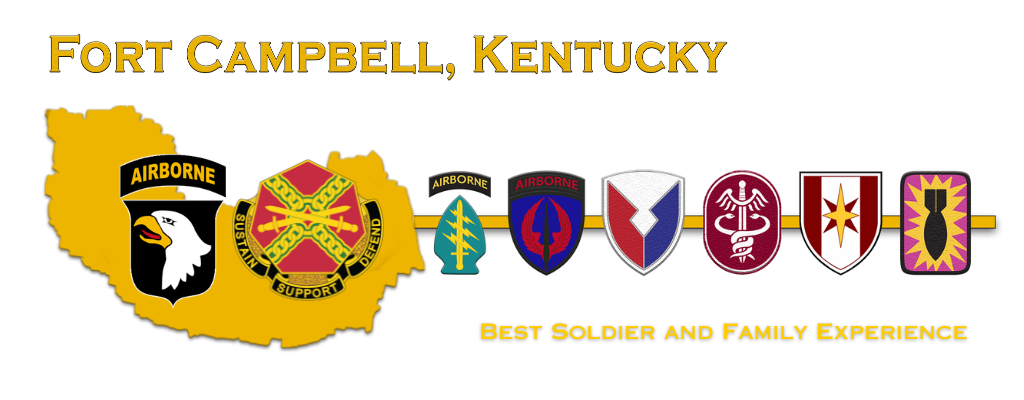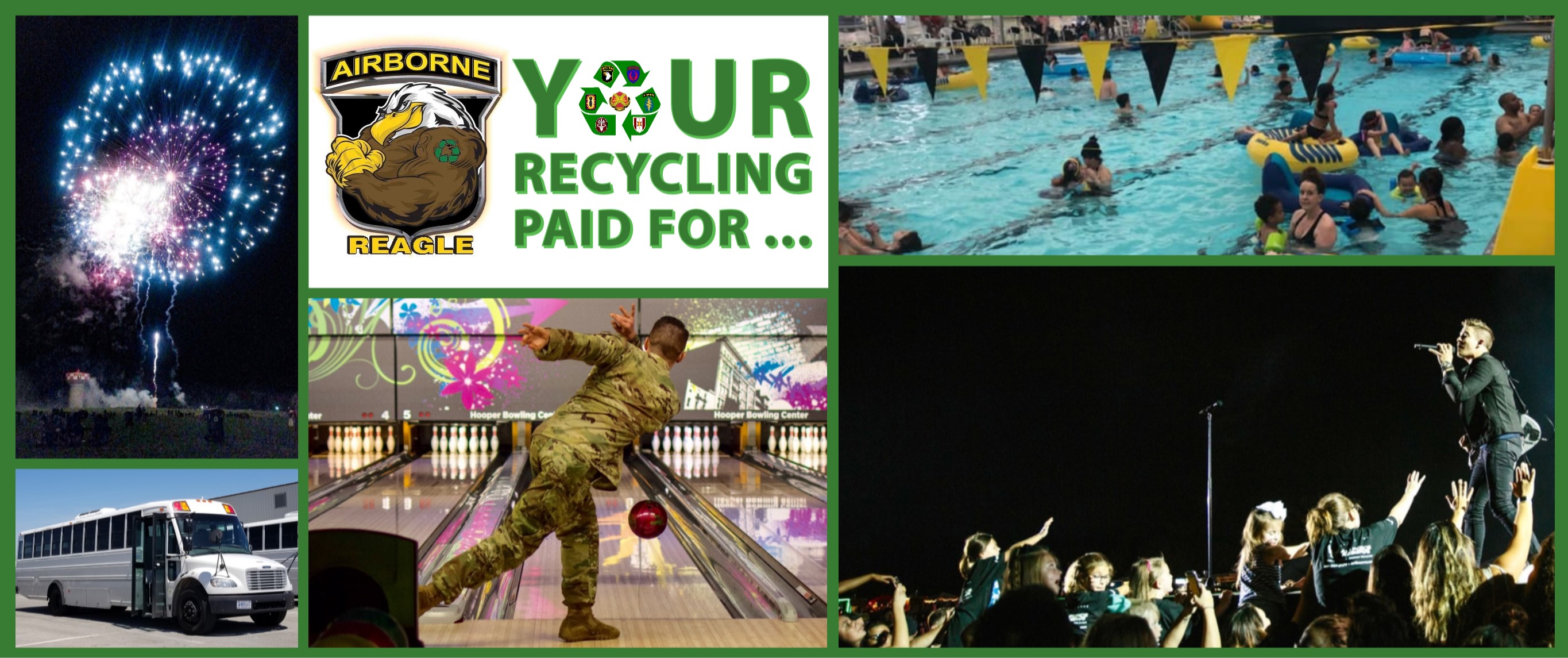Fort Campbell Refuse and Recycling Information
Recycling is a key factor in the management of solid waste. Recycling turns materials that would otherwise become waste into valuable resources. Not only does recycling divert materials from the landfill, but it also conserves natural resources while using existing ones.
Recycling on the installation increases money for Fort Campbell Soldier and Family programs and decreases trash disposal fees.
Aluminum/Tin Cans
Antifreeze
Appliances (non-military)
Batteries POV (privately owned vehicle)
Cardboard
Cooking oil
E-Waste (computers, TVs, monitors, power cables and electric cords, microwaves)
Field Trash
Fuel (including kerosene)
Glass (excluding tempered or mirrors)
Household Hazardous Waste
MRE Heaters (unused)
Pallets (broken)
Pallets (usable; wood and plastic)
Paper
Plastic #1 and #2
POV Fluids
Printer Cartridges
Steel (non-military)
Tires (POV) No Rims
Wood/Yard Waste/Leaves

The center is able to offer the service after receiving two storage sheds that allow for the collection and storage of boxes and papers. Previously those items were sent for recycling. Shipping type cardboard boxes now can be set to the side for anyone needing them.
Recycling of paper and cardboard is mandatory for all offices and activities per the Garrison Commander memorandum issued Jan. 31, 2003. Each major office building is equipped with containers for paper and small quantities of cardboard. All paper (paper in any color: newspapers, magazines, junk mail, brochures, flyers, scratch paper, copier/computer paper, manuals, tab cards, letterhead, paperboard packaging such as cracker boxes and soda boxes and phone books) should be placed in these containers for pick up by contractor personnel. Paper that is not collected includes laminated, carbon, photographic paper, tissues, napkins and paper cups/plates. Cardboard should be flattened and placed in recycle containers or flattened and stacked next to the container for removal. Building managers without paper containers should call 270-798-9785, 270-978-9618, or 270-798-9767 to obtain them. Paper and corrugated materials will not be placed in refuse containers or dumpsters for disposal.
The waste collection system is designed for the collection of waste generated on the installation during normal operations. Waste containers are sized and placed at locations throughout the installation to maximize convenience and minimize excess waste.
Field trash and off-post trash creates a burden on the waste collection system designed to collect only the waste normally generated on the installation. The Recycling Convenience Center is located near the south vehicle wash facility which is conveniently located and designed to handle trash during and at the end of field exercises. Field trash should not be taken to company or hangar areas.
Introduction of off-post trash at installation collection points violates Kentucky and Tennessee State Laws and causes overflows at collection points.
Introduction of hazardous materials/waste and munitions such as, unused MRE heaters, compressed gas cylinders, florescent light tubes, aerosol cans, blanks, smoke devices (used and unused), etc. into waste containers creates regulatory/safety problems and the potential for fines.

All Reagles Recycling Nests have MOVED to the Recycling Center located at 6802 A Shau Valley Rd. ✪.
Reagle's Recycling Nests were previously located near Gate 1 at Dolan Pool, the Exchange, and Dryer Field House. They are no longer available and all recycling should be taken to 6802 A Shau Valley Rd. ✪.





